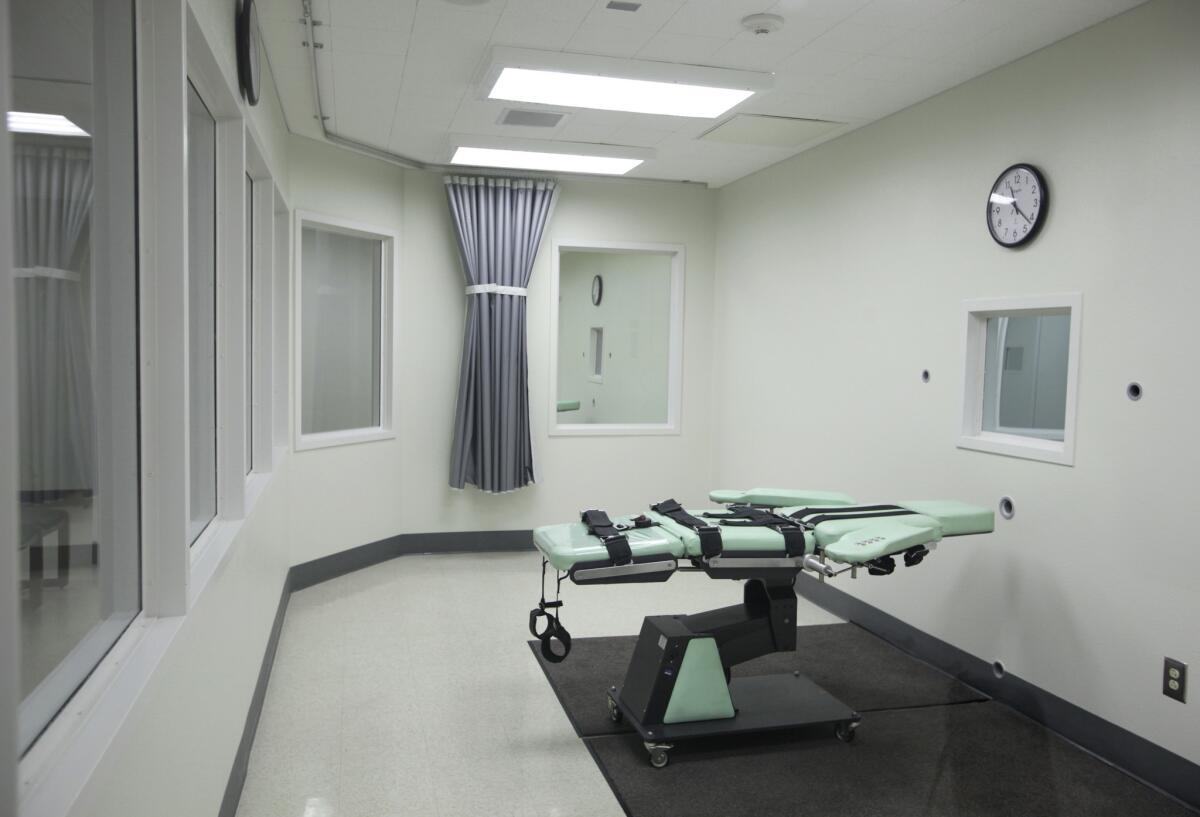Opinion: In a win for transparency, Arizona ordered to let witnesses see entire execution

Transparency in executions picked up a partial win in Arizona this week.
In a lawsuit filed by news organizations, U.S. District Judge G. Murray Snow ruled that an Arizona policy of shielding the actual injections in executions from the view of witnesses violates the 1st Amendment, and ordered future executions to be viewable from start to finish.
But he held over questions about whether the public has a right to know the “source, composition, and quality” of the execution drugs, and the qualifications of the people doing the killing.
This is a significant issue. The lawsuit arose from the botched 2014 execution of Joseph Wood, who took nearly two hours to die. One journalist who witnessed some of the execution said Wood looked like a “fish on shore gulping for air.”
The injection process, though, was done out of view, and it wasn’t until days later that it was revealed Wood endured 15 applications of a two-drug protocol, the sedative midazolam to render him insensate, and then an opioid, hydromorphone (Dilaudid), to shut down his lungs and heart.
The midazolam seems to have been the problem — it was involved in several other botched executions in other states. In a legal challenge by Arizona death row inmates, separate from the media lawsuit over openness, Arizona agreed this week to stop using the drug.
Arizona’s executions have been on hold under a court order arising from the problems with midazolam, and state officials — who have been anxious to resume executions — may have agreed to stop using the drug to try to get the order lifted. Unknown is whether Arizona’s decision will lead other states to follow suit.
If the government is going to kill, it must commit its immoral act under full scrutiny.
State executions are inherently inhumane, and immoral. And the ways states apply the practice are distressingly inconsistent, with poor people of color more likely to be condemned in a justice system that a steady stream of exonerations proves is too susceptible to manipulation to rely on for such an irreversible decision as putting someone to death.
It’s bad enough to give the state that power. It’s even worse to let it kill people in even partial secrecy.
As the death penalty becomes less popular, and political pressure to get rid of it increases, most of the states that still use capital punishment have been trying to hide aspects of how they actually execute people, including where they get the execution drugs.
California may join the ranks of the secretive under Proposition 66, which in addition to speeding up the appeals process (which I hope the courts find will unconstitutionally deprive people of due process) also removes the adoption of lethal injection protocols from the usual regulatory review process. So the state can decide in secret how it plans to conduct executions. Opponents of the initiative have already sued, and the state Supreme Court earlier this week halted its implementation while the case is pending.
Shielding the sources of the execution drugs goes even further. The argument by Arizona and other states is that businesses will be less willing to sell the killing drugs to prisons if the public will know who they are, and then protest or boycott. That’s hardly an excuse, as some courts have agreed, for violating the basic presumption of openness in government.
Capital punishment is a political decision, as California, Oklahoma and Nebraska saw this election cycle (pro-death-penalty initiatives passed in each state). The public has an established right to know how its government conducts business on its behalf, and with its tax dollars. Though it might make sense to shield some information from disclosure, such as police payments to confidential informants and home addresses of judges, saving a government contractor from political embarrassment is not defensible.
If the government is going to kill, it must commit its immoral act under full scrutiny.
Follow my posts and re-tweets at @smartelle on Twitter
More to Read
A cure for the common opinion
Get thought-provoking perspectives with our weekly newsletter.
You may occasionally receive promotional content from the Los Angeles Times.







